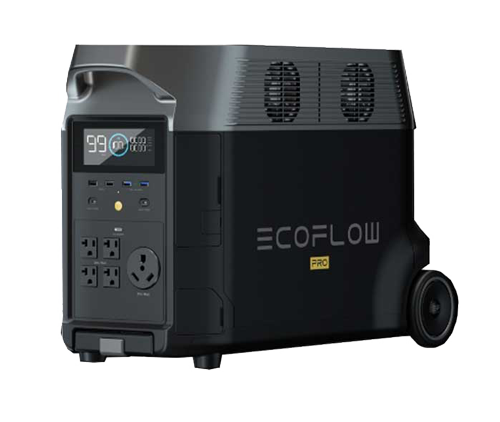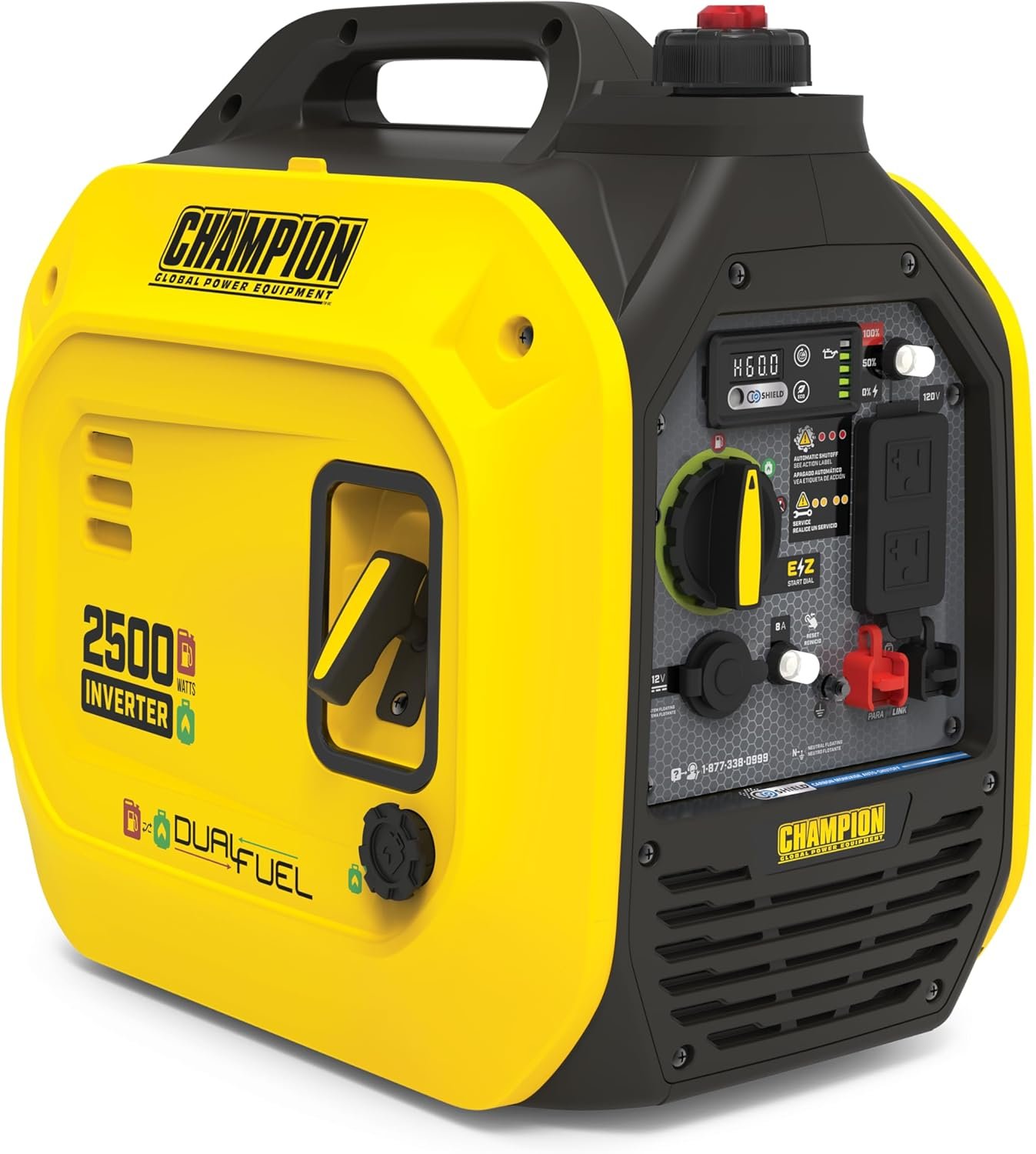|
10 People Are Viewing This Product Right Now |
EcoFlow Delta Pro Ultra X Review: Is This Plug-and-Play Powerhouse Worth the Upgrade?
Delta Pro Ultra X Review – Imagine blacking out during a storm, but your home stays lit, cool, and cooking without a hitch. That’s the promise of the EcoFlow Delta Pro Ultra X. This new system builds on the original Delta Pro Ultra, making home backup power simpler and stronger.
EcoFlow sent me their latest Delta Pro Ultra X to test. It focuses on key needs for backup systems. You get more power, storage, solar intake, and home ties than before.
The big wins come in four areas. The AC inverter jumps to 12,000 watts at 240 volts in dual-phase. Battery storage doubles to 60 kWh. Solar input nearly doubles to 10,000 watts. Home setup options now rival Tesla Powerwall or Generac, but at a lower cost and with easy installation.
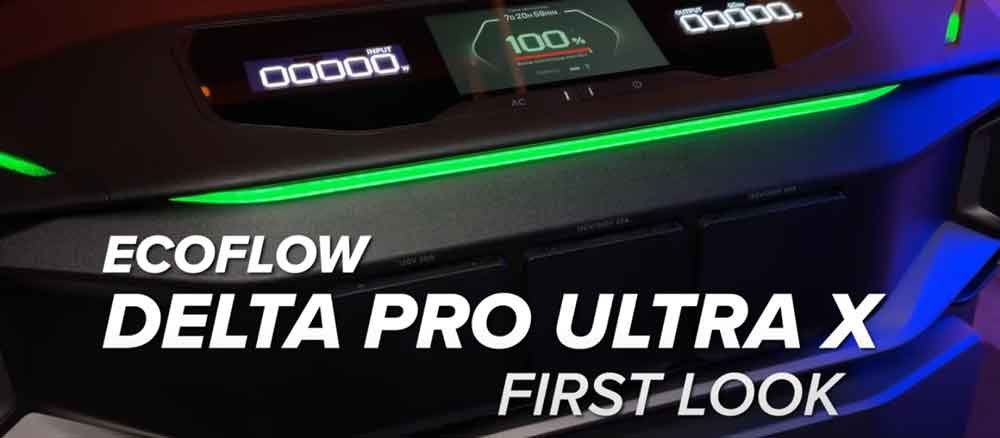
Massive Inverter Power: Doubling Down on AC Output
Delta Pro Ultra X Review – The heart of any backup system is its inverter. The Delta Pro Ultra X cranks this up big time. It handles way more juice than the old model.
1. 12,000-Watt Dual-Phase Inverter Upgrade
The original Delta Pro Ultra topped out at 7,200 watts. Now, the Ultra X pushes 12,000 watts at 240 volts in dual phase. That’s a 67% boost in raw power. This setup outmuscles the Tesla Powerwall 3’s 11,500-watt inverter. And it’s portable—no pro install needed.
In my home, where I run two AC units, a stove, ovens, and a dryer, this covers peak loads over 9,000 watts from my last two years of bills. You won’t sweat running your whole house. It powers heavy hitters without breaking a sweat.
2. New Output Port Configuration
Ports on the front keep things simple. You find two 120-volt outlets at 20 amps each. That’s down from four on the old unit, but it fits the focus on big power.
The 30-amp outlet is for 240-volt needs, like the high-output port before. A new 50-amp outlet unlocks the full 12,000 watts. Plug in appliances or tools that demand max output. This design cuts clutter. You get what you need for home backup without extras.
3. The Trade-Off: Removing DC and USB Ports
EcoFlow ditched USB and high-DC outputs. The original had them, but I never touched mine in a year of tests. This shift zeros in on AC power, the real star for backups.
Why bother with small ports when you want to run fridges or lights? It streamlines the unit. High-AC focus makes sense for serious home use. You lose flexibility for gadgets, sure. But for whole-home power, it’s a smart call.
Scalable Battery Capacity and Seamless Compatibility
Storage decides how long your backup lasts. The Ultra X shines here with room to grow. It fits big energy needs without starting from scratch.
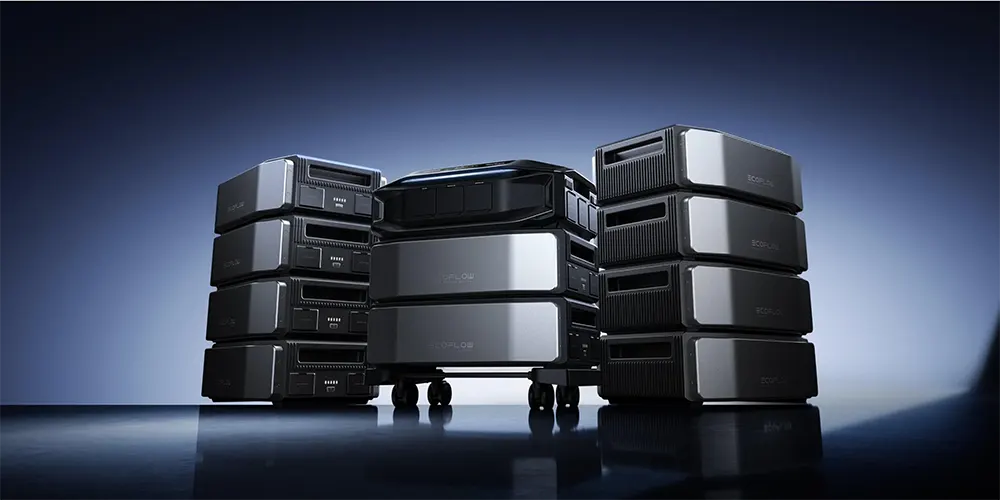
1. Doubling Down on Energy Storage
Delta Pro Ultra X Review – Max capacity hits 60 kWh now. That’s double the original’s limit. Stack batteries smartly to reach this. It equals about 4.5 Tesla Powerwalls in storage. Run your home for days on outages. Perfect for off-grid dreams or bad weather prep. This scale handles heavy daily use. No skimping on runtime.
2. Utilizing Existing Ultra Battery Modules
Good news if you own the original. Your 6 kWh LFP batteries work with the new inverter. Just update the firmware. No need to toss old gear. I have a big setup, and this saves cash. It keeps your investment alive. Upgrade feels less like a total redo. Batteries stay reliable and safe.
3. Battery Stacking and Connection Mechanics
Set up uses a heavy wheeled cart from the box. Stack batteries on it, then top with the inverter. Takes under five minutes. Two ports on the inverter link batteries. Short, low-profile cables connect close ones. A long cable reaches extras.
Chain up to five per stack for 30 kWh. Add a second stack for 60 kWh total. For two batteries, link the top one short and the bottom one long. Wheels make moving easy. It rolls where you need it.
Solar Input Revolution: Harvesting Near-Double the Power
Solar keeps batteries topped up for free. The Ultra X amps this way up. Charge faster from the sun.
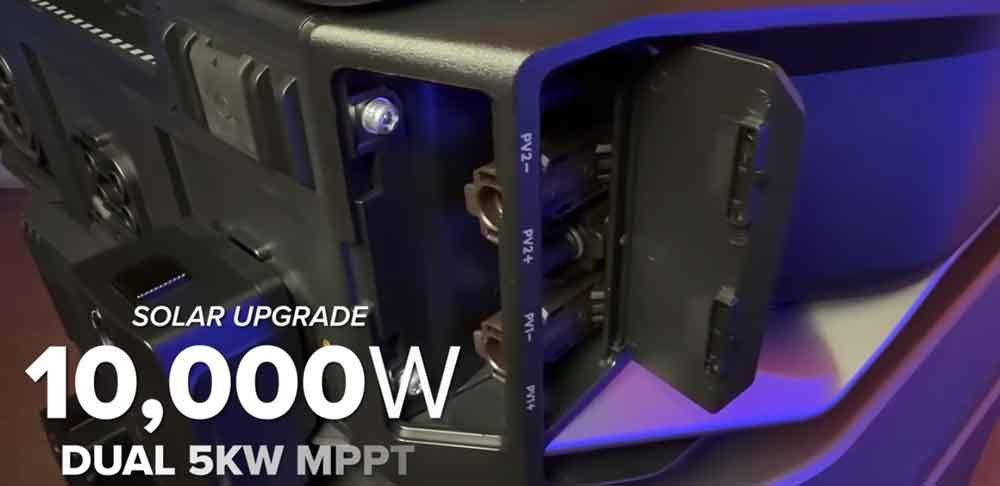
1. Ten Thousand Watt Solar Input Capability
The old model took 5.6 kW total solar. Ultra X grabs 10,000 watts across two controllers. Nearly double the harvest. Tie in rooftop arrays without worry. My 9.6 kW roof setup feeds it fine. More sun means less grid pull. This boosts self-reliance. Cut bills and go green more easily.
2. MPPT Specifications and Flexibility
Each MPPT handles 5,000 watts. Voltage runs 80 to 500 volts per input. Wire panels in series for big arrays. The 500-volt cap gives wiring freedom. But hit 80 volts min—link two to four panels. No single small panel works alone. It fits most home solar systems. Test it with your setup for the best flow.
3. Redesigned and Improved Solar Connections
The old unit had MC4 inputs and a side switch. That switch broke on mine; I shipped the whole thing back. New design fixes this. Two MC4 sets sit on the back with a door. Easy access, no fuss. A separate disconnect module comes included.
Mount the module on the wall. Hardwire solar lines in, plug the MC4 to the unit. Cleaner and tougher build. Replacements stay simple. No more full inverter returns.
New Arrival
Delta Pro Ultra X Review: Advanced Home Integration and Installation Simplicity
Tying into your house matters most. Ultra X makes this smooth. No big headaches.
1. Plug-and-Play Setup Experience
Unbox, stack, connect—done in minutes. Wheeled cart holds it all. Batteries on the bottom, inverter on top. Low-profile cable links them quickly. No tools or wire mess. Beats Pro setups every time. Roll it indoors or out. Flexibility rules.
2. Next-Generation Smart Home Panel Options
Smart Home Panel 3 handles 32 circuits at 200 amps. Swap your main panel for smart control. Or use as a sub-panel. Smart Gateway covers six circuits for the basics. Both switch sources from auto—grid to battery on outage. App tracks and saves energy. Add an EV charger and a CT sensor. Monitor loads in real-time. Full home tie-in.
3. Cost and Installation Advantages Over Competitors
Cheaper than Tesla or Generac. Plug-and-play cuts labor. Install the panel or gateway, and the rest follows. EcoFlow trains certified electricians. Find help fast. If you have a generator switch, plug right in. Best part: Take it when you move. Portable power pays off long-term.
Recharging Speed and Overall Performance Metrics
Fast charge keeps you ready. Ultra X delivers here, too. Quick top-ups matter.
1. Ultra-Fast Hybrid Charging Capabilities
Wall cable hits 1,800 watts. Beefy design matches generator or EV charger plugs. Hybrid mode blends AC and solar at 11.8 kW. Recharge 12 kWh in just over an hour. Two batteries fill fast. No long waits. Sun plus wall speeds it up. Stay powered without pause.
2. Real-World Testing Performance
I ran it for weeks straight. Quiet as a whisper, even under load. Handled my full house—ACs, stove, all at once. No hiccups or noise. It powered everything smoothly. Proves it’s built tough. Test it yourself; you’ll see the difference.
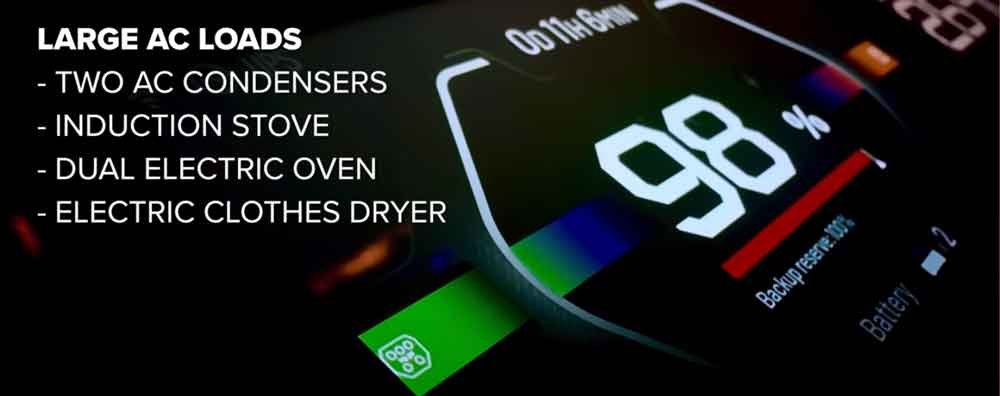
Upgrade Decision: Who Should Buy the Delta Pro Ultra X?
Weigh your needs before jumping. Ultra X packs a punch, but fit matters.
1. Summary of Key Advantages Over the Original Ultra
The top power at 12,000 watts rules. 60 kWh storage scales huge. 10 kW solar input grabs more rays. Quiet, plug-and-play wins. Backward-compatible batteries save money. Home integration rivals big names, cheap. If max output calls, grab it.
2. When to Stick with the Original Delta Ultra
Current Ultra works if 7,200 watts and 30 kWh suffice. Low PV input adds small array flexibility. Skip the upgrade if that fits. Pricing tips the scale—I await details. For light needs, the old one holds. Match it to your life.
Comparison With Other Products
 |
 |
 |
|
| DELTA Pro Ultra X | Delta Pro Ultra | DELTA Pro 3 | |
|---|---|---|---|
| View Product | View Product | View Product | |
| AC Output | 12kW, 120/240V, 60HzUp to 36kW in 3 parallel units | Discharging: Pure sine, 7,200W total, 120V/240V~ 60HzBypass: 100-120V~30A total, 50Hz/60Hz | 120/240V~16.7A 60Hz, 4000W total |
| Battery Capacity | 12kWh | 102.4V⎓60A, 6,144Wh | 4kWh |
| Max AC Output Voltage / Current | 240v/50A | 240v/30A | 120v/20A |
| AC/Solar Charging Input | AC Charging Input:100-120V 50/60Hz 1800W 15A120/240V 50/60Hz 7200W 30A120/240V 50/60Hz 12000W 50ABypass Mode: 100-120V 50/60Hz 1800W 15A120/240V 50/60Hz 7200W 30A120/240V 50/60Hz 12000W 50ASolar Charging Input:80-500V, 15A RMS*2 | AC Input”Charging: 100-120V~15A; 200-240V~12.5A, 50/60HzBypass: 100-120V~15A, 50/60Hz (duration < 3hrs when the current exceeds 12A)”Solar Charging Input”Total 5600W, 2 portsHigh-PV Input: 80-450V/15A, 4000W MaxLow-PV Input: 30-150V/15A, 1600W Max” | AC Charging InputCharge Only: 100-240V~15A 50/60HzBypass Mode: 100-120V~15A (3 hours Max), 12A (continue), 50/60HzSolar Charging Input2600W total, 2 portsHigh-PV Input: 30V-150V⎓, 15A, 1600W MaxLow-PV Input: 11V-60V⎓, 20A, 1000W Max |
| Number of AC Outlets | NEMA 5-20 (x2) 120V 20A NEMA L14-30 (x1) 120/240V 30A NEMA 14-50 (x1) 120/240V 50A | 120V AC Output Socket (Backup UPS): 2 x 20A Max per port120V AC Output Socket (Online UPS): 2 x 20A Max per port120V AC Output Socket (Online UPS): 1 x 30A Max120V/240V AC Output Socket (Backup UPS): 1 x 30A Max | Total: 74 x NEMA 5-20R, 120V/20A1 x TT-30, 120V/30A1 x L14-30, 120V/240V/16.7A1 x NEMA 6-20R, 240V/16.7A |
| UPS | <10ms standalone, <20ms with Smart Home Panel 3 | Backup UPS <20 ms; Online UPS 0 ms | 10ms |
| Max. Scalability | Up to 180kWh, 36kW | Up to 90kWh, 21.6kW | Up to 36kWh, 12kW |
| Auto Home Backup Switch | YES Auto switchover <20ms when paired with EcoFlow Smart Home Panel 3 | YES Auto switchover <20ms when paired with EcoFlow Smart Home Panel 2 | YES Auto switchover <20ms when paired with EcoFlow Smart Home Panel 2 |
| Feature Availability | Customized Widget Dashboard, Third-party Devices IntegrationFuture Electricity Price AnalysisSelf-PoweredTOU ModeScheduled TasksAPIAI Assistant | Customized WidgetDashboardThird-party Devices IntegrationFuture Electricity Price AnalysisGenerator Auto Start/StopSelf-PoweredTOU ModeScheduled TasksAPI | DashboardThird-party Devices Integration, Generator, Auto Start/StopScheduled TasksAPI |
| Net Weight | Inverter: 34.5±0.2kg(70.06±0.44 lb)Battery: 50.5±0.2kg(111.3±0.44 lb) | Inverter: 31.7 kg (70 lb) Battery: 50.7 kg (111.8 lb) | Approx. 51.5 kg |
| View Product | View Product | View Product |
Conclusion: Final Verdict on the Ultra X Power System
Delta Pro Ultra X Review – The EcoFlow Delta Pro Ultra X redefines backup power. It doubles down on what counts: raw output, big storage, solar might, and easy home links. At a lower cost than rivals, with portability, it’s a standout.
If you crave top-tier scalability, this is your pick. Current owners, check if your setup needs the boost. Ready for reliable power? Dive into the Ultra X and secure your home today. What do you think—upgrade or hold? Share below.
EcoFlow Stores
| United Kingdom | Italy | France | Spain | Germany | Canada | Australia | Europe |
 |
 |
 |
 |
 |
 |
 |
 |
| Visit Here | Visit Here | Visit Here | Visit Here | Visit Here | Visit Here | Visit Here | Visit Here |





